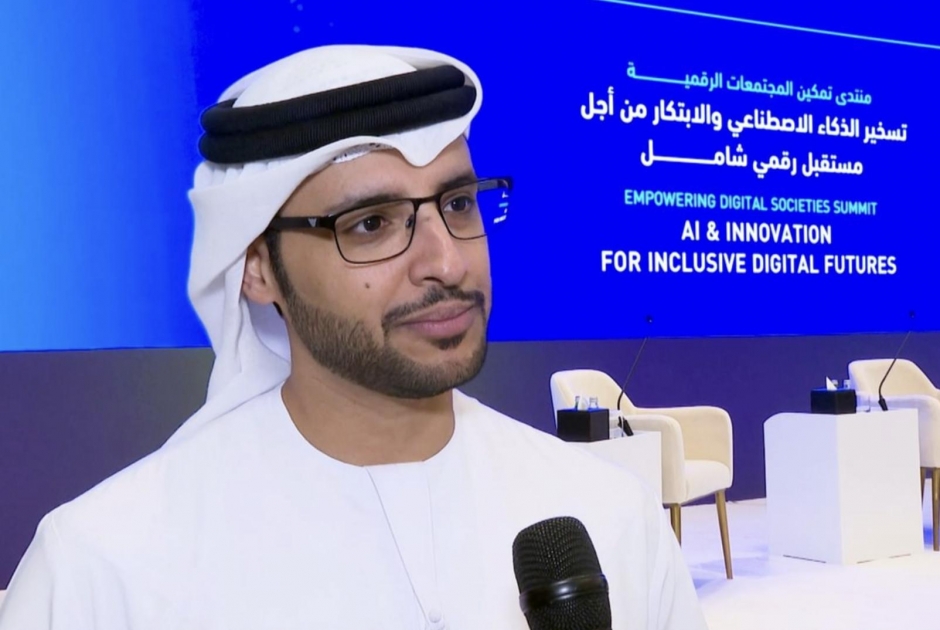
Youth partners in shaping UAE’s digital future: Federal Youth Authority
Khaled Al Nuaimi, Director of the Federal Youth Authority, has affirmed that youth in the UAE are not merely consumers of technology and artificial intelligence (AI), but genuine partners in shaping the country's digital future and co-designing the government services they use.
Speaking to the Emirates News Agency (WAM) on the sidelines of the Empowering Digital Societies Summit, organised today in Dubai by the Telecommunications and Digital Government Regulatory Authority (TDRA), Al Nuaimi said that youth are the most engaged demographic with AI tools, and therefore must be empowered to transition from passive users to conscious participants and active contributors to solution and service development.
He noted that the Federal Youth Authority engages young people aged 15 to 35, providing them with the tools and support necessary to be part of an integrated system that enhances their future journeys across various fields.
Al Nuaimi highlighted that there are over 200 youth councils across the UAE, including specialised councils focused on sectors such as humanitarian affairs and sustainability, in addition to local youth councils across all emirates.
“These councils play a vital role in supporting youth, enabling them to propose innovative ideas and solutions to challenges faced within their institutions and communities,” he said.
He added that AI presents a historic opportunity to build a generation capable of influencing and shaping the future. “The real challenge lies not only in keeping pace with technological advances, but also in nurturing well-rounded individuals, equipped with moral and intellectual integrity alongside technical skills,” Al Nuaimi stated.
As AI takes over more tasks, he stressed the importance of focusing not only on technical competencies, but also on soft skills such as adaptability, decision-making, and the ethical use of AI tools.
“It is essential to teach young people how to use AI tools responsibly, to verify the accuracy of the data they input, and to critically assess the outputs they receive rather than accept them at face value,” Al Nuaimi concluded.



























